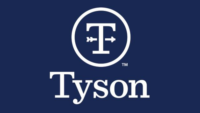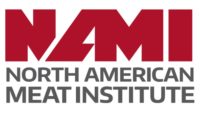EcoBalance, KazBeef and rTek launch climate-smart beef pilot program at COP28
Pilot project aims to use EcoBalance's Framework as a global standard for sustainable and climate-smart beef supply.

Logo courtesy Ecobalance Global
EcoBalance Global, a U.S.-based carbon reduction project developer, consultant and carbon program manager, Kazbeef, a subsidiary of Yerkin Tatishev's Kusto Group, and rTek, a Rakurs Consulting Group company, have partnered to launch the first-ever pilot ranch outside the United States that will deliver the world's first climate-smart beef, using carbon insets, backed by third-party validation and blockchain technology.
The pilot has been launched at COP28 in Dubai following the signing of a Memorandum of Understanding between the companies. The project will not only enable blockchain-transacted environmentally sustainable cattle outside the United States, but will also show the world that the livestock and farming industry can be part of the net-zero solution.
The foundation for the KazBeef pilot is EcoBalance Global's Framework that supports ranches in deploying a specialized rotational grazing program that allows increased carbon capture in the soil, and utilizing machine-learning satellite technology to monitor sustainable land management, focusing on accurate carbon accounting. This is backed up by the framework's carbon trade and risk management platform to administer all the requirements of the framework in conjunction with the blockchain.
As part of the program, rTek, a company based in Almaty, Kazakhstan, will leverage its expertise in remote sensing and MRV development, particularly in precision agriculture, to support the pilot program.
The 10-year pilot project is expected to demonstrate the world's first carbon-inset beef supply chain. It is scalable, with the goal of using EcoBalance's Framework as a global standard for sustainable and climate-smart beef supply.
Tellan Steffan, EcoBalance Global, said, "We are delighted to launch the pilot project with the signing of the MoU with our partners at KazBeef and rTek at COP28. This program will enable Kazakh farmers to have the world's first working carbon storage project on their land that can be scaled and the means to create and market low carbon beef products.
One-third of all human-caused greenhouse-gas emissions, are generated from food systems, and it is hoped that the EcoBalance Framework can offer a comprehensive solution for the reduction of carbon emissions in the agricultural sector and [establish] a template that can be scaled globally."
Established in 2011, KazBeef has consistently showcased its dedication to environmentally conscious farming practices while maintaining a high-quality operation that includes more than 15,000 heads of cattle and produces more 6,000 tons of beef per annum.
In its partnership with EcoBalance Global, KazBeef has found a partner that is equally focused on the development of pioneering farming methods, driven by a mission to reduce the industry's carbon footprint and provide new revenue for local farmers.
EcoBalance Global's pilot ranch in North Dakota has created over 18,000 registered soil carbon credits, while simultaneously producing and tracking 900 head of climate smart cattle.
Yerkin Tatishev, chairman of Kusto Group, said, "Kazbeef is a pioneer in environmentally conscious farming and ranching practices. Through this new partnership, we are leading the way in carbon capture in agriculture thanks to our partnership with EcoBalance Global. It is my hope that our efforts can be a model to many others and I am delighted that this has also been recognised through our participation in Kazakhstan's pavilion at COP28.
"COP28 offers a unique opportunity to discuss the ongoing transition in global food production and farming, and I am proud that KazBeef will play an integral role in creating a more sustainable future for us all."
Dosym Kydyrbayev, managing partner, Rakurs Consulting Group, said, "As we embrace the challenges and opportunities of environmental sustainability in Kazakhstan, it's crucial to recognize the pivotal role of innovative technologies and data-driven approaches. Companies like rTek are at the forefront of this transformation, offering vital solutions in soil sampling, MRV, standards adoption, and QA processes for carbon projects.
To advance Kazakhstan's decarbonization goals, the private sector must commit to long-term collaboration with governments, local, and international bodies. With this project and others, we aim to support our nation's ecological goals but also to position Kazakhstan as a leader in climate action and sustainable development."
Sources: Ecobalance Global; Kazbeef
Looking for a reprint of this article?
From high-res PDFs to custom plaques, order your copy today!





